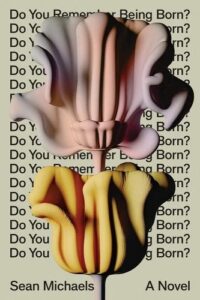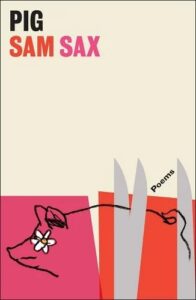
Lit Hub’s Most Anticipated Books of 2023, Part Two
166 Titles We’ll Be Reading in the Second Half of the Year
SEPTEMBER
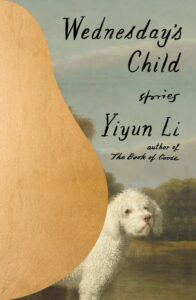
Yiyun Li, Wednesday’s Child
FSG, September 5
What I love about Yiyun Li’s work is that her voice never fails to surprise and captivate me, whether she’s writing from the perspective of a young woman in rural, postwar France (The Book of Goose), a grandmother of 17 revisiting a bygone love affair (Must I Go), or herself (Dear Friend, from My Life I Write to You in Your Life). So I’m particularly excited to ping-pong about in her new story collection, which gathers tales of loss and longing from the past decade and features a cast of characters whom I can’t wait to meet. –ES
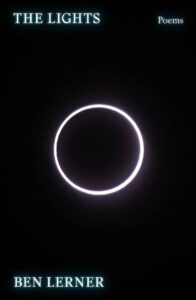
Ben Lerner, The Lights: Poems
FSG, September 5
Some people will probably pick up Ben Lerner’s new book of poetry expecting the ease of accessibility promised by The Topeka School—but Lerner’s poetry is where he lets loose, ignoring anyone’s conventional wishes for succinctness and poignancy. It strikes me as the space he gives himself to figure out his own place in the mess of the world. This collection was written over the past 15 years, years in which his career has erupted and his life has changed, all against the backdrop of calamity and chaos, of joy and wonder. Lerner’s mind is huge and encompassing, his thoughts rove and leap and sink and stretch; it’s a gift that he allows us to be there with him. –JH
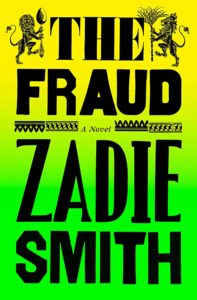
Zadie Smith, The Fraud
Penguin Press, September 5
Zadie Smith’s first novel since 2016’s Swing Time is based on Tichborne case, a lengthy English trial in the 1880s over a man’s claim that he was the presumed dead son of a wealthy family—and thus entitled to a hefty inheritance. Smith has folded this historical episode—already rife with drama and intrigue—into a larger character-driven narrative about truth and deception and what we choose to believe. It’s hard to imagine this being anything but this year’s blockbuster. –JH
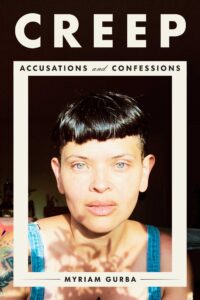
Myriam Gurba, Creep: Accusations and Confessions
Avid Reader Press, September 5
Gurba’s forthcoming book is “an informal sociology of creeps” that implicates everyone from “Joan Didion to her former abuser, everything from Mexican stereotypes to the carceral state.” With personal essays that transform into astute pieces of cultural criticism, Gurba explores the way creeps haunt our books, our schools, and our homes—and how we can work to challenge them. –Emily Firetog, Deputy Editor
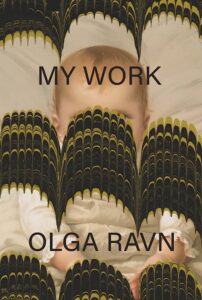
Olga Ravn, tr. Sophia Hersi Smith & Jennifer Russell, My Work
New Directions, September 5
Olga Ravn’s last novel, The Employees (2018), tells the story of a space vessel crewed by humans and humanoids alike, whose mission to explore a new planet descends into chaos when they’re confronted with mysterious local artifacts. On the surface, My Work seems quite different in scope: it tells the story of Anna, a new mother, overwhelmed and depressed in Stockholm, writing and reading through the gamut of experiences her situation entails. But something tells me that interacting with humanoids and sentient space objects have more in common with the first stages of motherhood than one might think. –ES
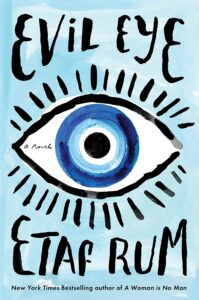
ETAF RUM, EVIL EYE
HARPER, SEPTEMBER 5
As previously recommended: The bestselling author of A Woman is No Man is back with a novel about a Palestinian woman who thinks she has finally constructed the perfect life—away from her conservative family, living in the suburbs, teaching at a local college, raising her two daughters much differently than she herself was raised. But things (as they tend to) begin to go awry, and Yara’s mother blames a family curse. “I was mainly inspired by the Evil Eye—a supernatural belief in a curse brought upon by a malevolent glare—which was a common superstition in my household growing up, as well as my Palestinian-American community in Brooklyn,” Rum told Today. But what, for Yara, does that even mean? –ET
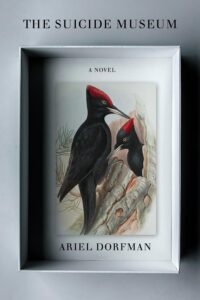
Ariel Dorfman, The Suicide Museum
Other Press, September 5
An unusual duo—a wealthy Holocaust survivor and a struggling writer—team up to understand the 1973 death of the Chilean president in this wide-ranging novel that’s both complex investigation and emotional history. Ariel Dorfman is best known as the author of Death and the Maiden, and The Suicide Museum once again uses a mixture of fact and fiction to process the trauma of Chile’s dictatorship. –MO
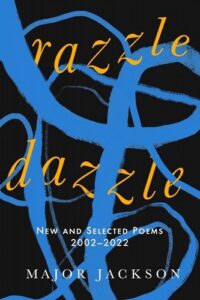
Major Jackson, Razzle Dazzle: New and Selected Poems 2002-2022
Norton, September 5
An essential collection for poetry fans, bringing together the best of two decades of Jackson’s work, drawing from five volumes and including more than three dozen new poems. –ET
Sean Michaels, Do You Remember Being Born?
Astra House, September 5
The third novel from Scotiabank Giller Prize winner (and founder of Said the Gramophone) Sean Michaels examines what happens when an aging poet and longtime art monster agrees—for a great deal of money—to co-author a poem with an AI poetry bot named Charlotte. The result is a novel, as Alix Ohlin writes, that “evades simple binaries about art and technology to tell a story about families, legacies, and connection; most of all, it’s a love letter to language itself.” –ET
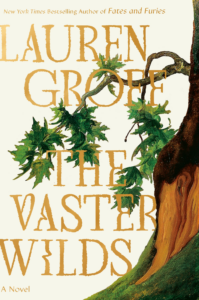
Lauren Groff, The Vaster Wilds
Riverhead, September 12
In Groff’s latest, a young girl escapes a colonial compound, leaving behind a violent crime and a starving community, and tries to make her way to what she imagines might be her salvation in the north, pushing herself ever faster, ever harder to evade the man sent after her, the strangers living on the land, and the brutal, beautiful land itself. Kind of like Das Boot in the wilderness—a weird one, no doubt, but one I couldn’t stop reading. –ET
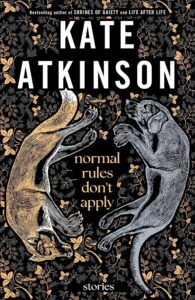
Kate Atkinson, Normal Rules Don’t Apply: Stories
Doubleday, September 12
Pulled from stories that have been published over the past decade-plus. Normal Rules Don’t Apply has all the Atkinsonian ingredients you’d expect: Toys who witness the horrors of growing up, a daily apocalypse you can set your watch to, babies housed in cupboards, hapless parents, children flattened by cars, akilter language, and an enduring if unremarkable main character—Franklin—who might be surprised to find himself living so rich a life in the criss-crossing tales. There’s a solid existential bent to the collection, which also features an average intellect, Kitty, working to design the Earth from scratch like a full-stack engineer on learner plates, a royal who falls for an American actress, and parallel tales that bend at the last minute to collide with sturdy netball calves. This collection is lots of fun—she really makes it look easy. –JM
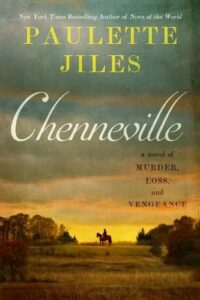
Paulette Jiles, Chennevill
William Morrow, September 12
Those looking for exquisite historical fiction from a master of the mood should look no further—the latest from Paulette Jiles (News of the World, Simon the Fiddler) is set just after the Civil War, following a Union soldier who comes home to find that his sister’s family has been murdered, and must—despite his traumatic head injury—track down the man who did it. –ET
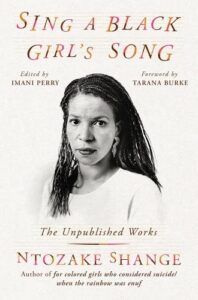
Ntozake Shange, Sing a Black Girl’s Song: The Unpublished Works of Ntozake Shange
Legacy Lit, September 12
As America seems to be regressing at a dizzying pace—at the behest of a loud and hateful minority—it is more important than ever that we celebrate voices like Ntozake Shange’s. As a playwright, poet, and sometimes essayist, Shange worked at the intersection of Black liberation and radical feminism (a space that was often difficult to occupy, at least in the context of the male-dominated Black Arts Movement). As half this country seeks to deny Black history and its attendant culture, the work of artists like Shange must be preserved and celebrated. This posthumous collection of essays, poems, and plays—many being published for the first time—does just that. –JD
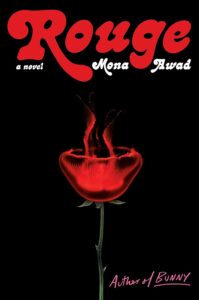
Mona Awad, Rouge
Simon & Schuster/Marysue Rucci Books, September 12
Awad’s latest is a dreamy (or perhaps nightmarish) gothic fairy tale about a mother, a daughter, and their shared obsession with their own beauty. Like all of Awad’s novels, it reels you in, shakes your brain until you’re not sure what you’re seeing, and then floats off cackling on a cloud of smoke. Metaphorically, that is. I’d forgive you for not being sure. –ET
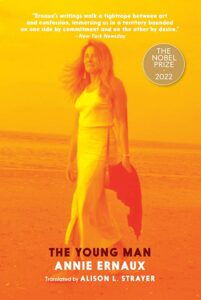
Annie Ernaux, tr. Alison L. Strayer, The Young Man
Seven Stories, September 12
The winner of the Nobel Prize in Literature in 2022, Annie Ernaux went from cult favorite to household name in an instant. The Young Man, Ernaux’s first book since becoming a laureate, continues in her favorite thematic vein: it’s the story of a love affair. But an affair is never just an affair for Ernaux—it’s the locus around which to revolve many questions, about identity, desire, and most of all, time and its all inarguable forces. –JH
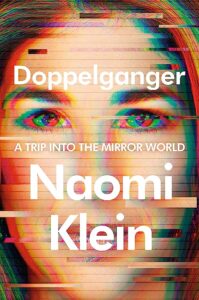
Naomi Klein, Doppelganger: A Trip into the Mirror World
FSG, September 12
Well folks, Naomi Klein has finally done the inevitable and turned this classic tweet* into a whole book.
“This book is a departure for me,” Klein says. “It’s more personal, more experimental, and while it’s not about my doppelganger in any traditional sense, it does explore what it feels like to watch one’s identity slip away in the digital ether, an experience many more of us will have in the age of AI. Mostly, it’s an attempt to grapple with the wildness of right now—with conspiracy cultures surging and strange left-right alliances emerging and nobody seeming to be quite what they seem. Doppelganger is my attempt at a usable map of our moment in history—but to make it, I had to get lost a few times.” Sounds like the kind of book we need right now. –ET
*For those who don’t click through, a reminder:
If the Naomi be Klein
you’re doing just fine
If the Naomi be Wolf
Oh, buddy. Ooooof.
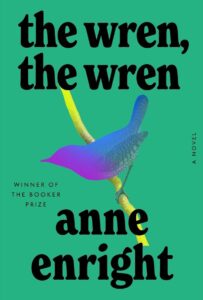
Anne Enright, The Wren, The Wren
Norton, September 19
Anne Enright is a master at unpacking the strange and complex relationships within families in perfect, crystalline prose. In her new novel, Nell leaves her mother Carmel’s home to find her voice as a writer. But she seems to be living in the shadow of her grandfather, the celebrated Irish poet Phil McDaragh, who’s love poems are celebrated by the public, but paint a very different man from the father Carmel knew. A story about inheritances—of poetry, of abandonment, and of love. –EF
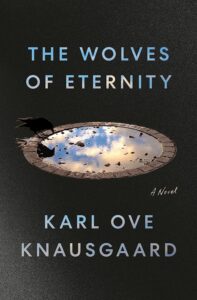
Karl Ove Knausgaard, tr. Martin Aitken, The Wolves of Eternity
Penguin Press, September 19
Most lovers of Karl Ove Knausgaard (at least in the English-speaking world) love him for his startling literary compulsion to reveal himself (and those around him). As an autofictionalist he is very auto-, and does it with a hypnotic torrent of words that somehow alchemizes the mundane into page-turning urgency. The Wolves of Eternity will mark something of return to conventional fiction (in English, at least) for Knausgaard, as he unspools a novel in dual but intersecting timelines, revealing the lives of others—and how they are all connected—in mid 1980s Norway and present-day Russia. –JD
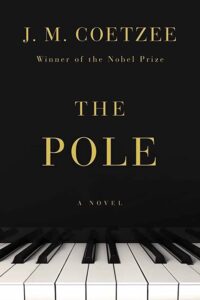
J.M. Coetzee, The Pole
Liveright, September 19
The latest novel from the Nobel Prize-winning author of Disgrace concerns a Polish pianist who falls in love (or in lust) with a married woman. Not interested at first, she soon finds herself drawn into her pursuer’s orbit—which is not to say he has won. Coetzee is a master of shifting power dynamics and complex relationships; this slim book should be a treat. –ET
Sam Sax, Pig
Simon & Schuster, September 19
The third collection from the author of Madness, winner of The National Poetry Series and Bury It, winner of the James Laughlin Award from the Academy of American Poets takes as its starting point (you guessed it) the noble pig, with its many connections and connotations (“farm animal, men / masculinity, police and state violence, desire, queerness, global food systems, religion / Judaism and law”) in order “to reimagine various chaotic histories of the body, faith, ecology, desire, hygiene, and power.” Can’t wait to dig in. –ET
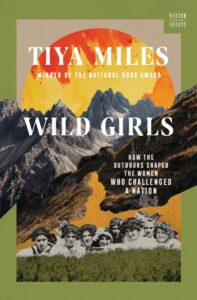
Tiya Miles, Wild Girls: How the Outdoors Shaped the Women Who Challenged a Nation
Norton, September 19
Award-winning Miles crafts a meditative narrative-history of women outdoors; from Harriet Tubman who was forced to labor on a Maryland plantation, to Louisa May Alcott in New England, to an Indigenous women’s basketball team in Montana. “Wild Girls… reveals the impact of the outdoors on women’s independence, resourcefulness, and vision.” –EF
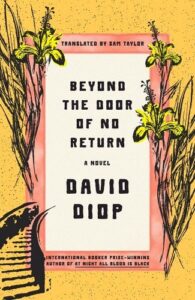
David Diop, tr. Sam Taylor, Beyond the Door of No Return
FSG, September 19
Diop’s first novel since he was the first French writer to win the 2021 International Booker Prize (for At Night All Blood is Black) is a mystery box of stories-within-stories informed by Senegalese oral tradition that sends us from Paris in 1806 to the Senegalese bush, with many legends and questions and projections in between. –ET
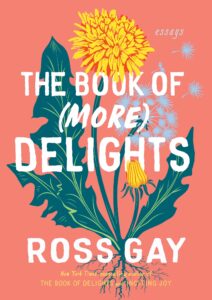
Ross Gay, The Book of (More) Delights
Algonquin, September 19
The reason to get excited about this one is right in the title. The follow-up to Gay’s 2019 The Book of Delights is guaranteed to be enormously delightful. Gay is a master at amplifying the delights all around us in a way that feels both profound and conversational. The Book of Delights had the feel of an intimate letter from your smartest and most optimistic friend, and I simply can’t wait for more. –JG
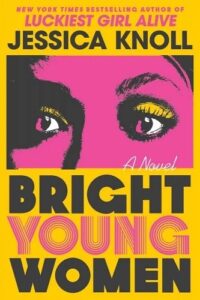
Jessica Knoll, Bright Young Women
S&S/MarySue Rucci, September 19
Jessica Knoll is a careful writer, and this, her third novel, is a perfect match for her cold dissection of social mores and her fierce rage at misogyny. Knoll takes on the story of Ted Bundy, told from the perspective of a student who survives a horrific attack on a sorority house. She then must fight to preserve her sisters’ dignity and get the truths of their last moments as the world around them fetishizes their killer and attempts to make jokes of their deaths. Some may claim that the crime genre is rift with misogyny; those people have not read Jessica Knoll. She tears apart the restrictive world of women’s roles and lays bare the purpose of such hobbles: to keep women from making a scene, to keep them from seeking justice, and most of all, to keep them from seeking their own lives. –MO
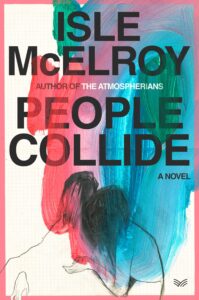
Isle McElroy, People Collide
HarperVia, September 26
Imagine that you’re a newly married husband and you wake up one morning in your wife’s body. Now imagine that your wife (presumably in your body) is missing. If there’s anyone I trust to run with this premise, it’s Isle McElroy, a nonbinary author whose debut novel, The Atmospherians—about a summer camp for problematic men—reads like part satire, part thriller, part earnest search for understanding. I imagine that combination of sensibilities will also infuse this story of gender, partnership, and transformation. –ES
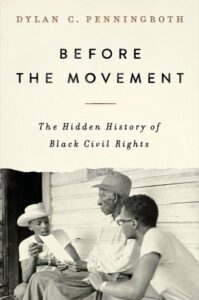
Dylan C. Penningroth, Before the Movement: The Hidden History of Black Civil Rights
Liveright, September 26
It is not hyperbole to say there’s a war on history happening in America right now. As dozens of states deny teachers the right to share the darker corners of this country’s past—from slavery to Jim Crow to internment—in order to protect the “feelings” of white people, we must, at every turn, push back. Dylan C. Penningroth’s pre-history of the Civil Rights Movement, which examines Black traditions of private law and “the rights of everyday use,” is the kind of work we need more of. Before the Movement makes the case that the underpinnings of 20th-century Civil Rights stretch back to the middle of the 19th century, and grew from Black legal acumen manifested in worship, scholarship, and the details of daily life. –JD
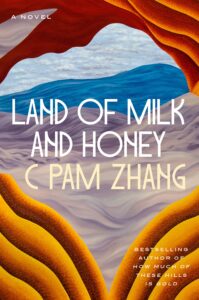
C Pam Zhang, Land of Milk and Honey
Riverhead, September 26
C Pam Zhang burst onto the scene in 2020 with her dazzling debut novel How Much of These Hills Is Gold, an epic dismantling (and reimagining) of the myths of the American West which was hailed by many as one of the debuts of the year. Her hotly anticipated sophomore effort is the story of a despondent young chef, in a near future where crops are rapidly disappearing, who escapes her dying career to take a job at a luxurious (and smog free) mountaintop colony peopled by the global elite and seemingly free of the world’s climate troubles. “An exploration of desire and deception, privilege and faith, and the roles we play to survive,” Land of Milk and Honey sounds a bit like The Menu meets Ballard’s High Rise, and I can’t wait to tuck in. –DS
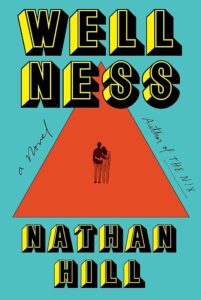
Nathan Hill, Wellness
Knopf, September 26
A novel about two people: their initial bond, their shared coming of age, their marriage, and their constant quest for a spiritual center. Jack and Elizabeth once led deeply urban, artistic lives, but now they find themselves married in suburbia, attempting to fill the creeping void with supplements, yoga, and self-betterment. It’s a tale as old as time, that of dreams dashed and the looming threat of unfulfillment, but with a contemporary wellness spin. –JH
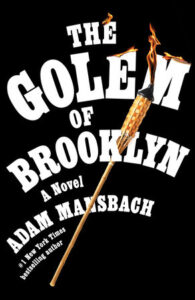
Adam Mansbach, The Golem of Brooklyn
Random House, September 26
An art teacher makes a golem. The golem is very confused. Why is he back? What dangers are the Jewish people facing? Why did G-d allow such an idiot to bring him life? And where is his penis? Luckily Miri, the Yiddish-speaking ex-Hasid clerk at the corner store, is ready to help them out, as is his weed dealer, Waleed, and a host of other colorful neighborhood characters, including a bodega cat. What follows is a picaresque misadventure, a dive into Jewish history, and a warning about the American present. If you want more golems, Aden Polydoros has a novel coming out in October called Wrath Becomes Her: a teenage girl is killed in the Holocaust and brought back as a clay creature, seeking vengeance. –MO
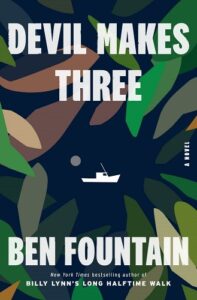
Ben Fountain, Devil Makes Three
Flatiron, September 26
Fountain—author of Billy Lynn’s Long Halftime Walk—sets his second novel in the aftermath of the 1991 Haitian coup d’état, in which President Jean-Bertrand Aristide was forcibly deposed by the military. In the turmoil, Matt, an American expat who has made his living taking tourists on scuba dives, and his Haitian best friend Alix, try to make ends meet by searching shipwrecks rumored to contain treasures—but find a heap of trouble in the process. –ET
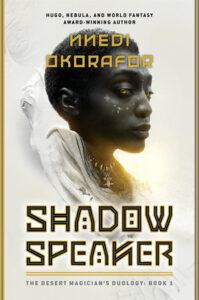
Nnedi Okorafor, Shadow Speaker
DAW, September 26
Shadow Speaker is a gorgeous new edition of an early Okorafor novel that had sadly gone out print. Ejii Ugabe, the novel’s heroine, loses her father at a young age. Now 15, she’s off to find his killer. Her father was not a good man, and the killer is a cipher, as is Ejii’s motivations for finding him. Revenge? Consolation? Perhaps a plan that requires assistance? Keeping great novels in print takes a village, and I rejoice every time a publisher brings another book back into circulation, but especially this one. –MO
Cameron McWhirter and Zusha Elinson, American Gun: The True Story of the AR-15
FSG, September 26
I can’t tell you how sorry I am that we need this history of the AR-15, from Wall Street Journal reporters McWhirter and Elinson, which seeks to answer the question: “How did the same gun represent the essence of freedom to millions of Americans and the essence of evil to millions more?” And yet need it we do. –ET
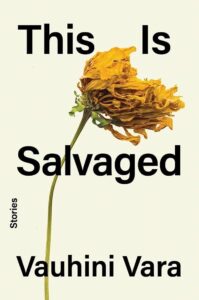
Vauhini Vara, This is Salvaged: Stories
Norton, September 26
Inside each strange but recognizable story in This Is Salvaged you’ll find lines that knock you flat and emotions that bend back on themselves. Amid grief for a dead sibling, there is labial sweat and the solemn rite of washing a loved one’s face and sackballs; in the dark, a drunk aunt crawls toward her sleeping niece with near-religious reverence for the little pile of her body; an artist gets a grant to build a replica of Noah’s ark but doesn’t finish before the funds dry up. What led to so many underlines in my copy, though, was Vara’s loose philosophy around the roles and connection shared by the women going in and out of her stories, which feeds into zippy, spirited, and touching moments. –JM
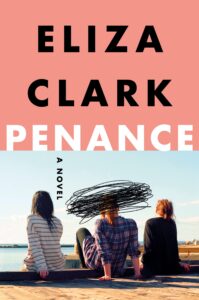
Eliza Clark, Penance
Harper, September 26
Eliza Clark’s Boy Parts stunned me with its grotesque grand guignol violence and reversal of the male gaze, and Penance is just as good, although somewhat kinder to its characters. Penance is a take on the infamous Slenderman case (a real-life case linked to the undiagnosed schizophrenia of one attempted murderer and the folie a deux madness that gripped both her and her friend), but with different motivations for the killers. When three high school girls murder their rival, the world is quick to condemn them for their monstrosity, but as we read the novel, we see that they are monsters made, not monsters born. Of particular note is a scene in which one traumatized character tortures her Sims. I then went down a rabbit hole of how people torture their Sims and…wow. –MO









